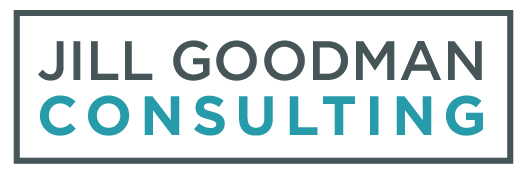Hey, Can You Write a Grant for That?
How often has a teacher or a staff member come to you with an idea for a project that will happen in a few months, and they want grant funding to cover it? Development Directors have a super-human capacity for getting things done, but understanding how grant funding works from private, family, and corporate foundations will keep you from spinning your wheels.
Here are eight strategies to help you organize a grant-writing campaign:
Know Your Organization's Strategic Vision. Attend board and staff meetings to understand the programmatic priorities for the following year. Arrange to meet with each department to understand their needs. After gathering information about priorities across the organization, confer with the Head of School and CFO to further prioritize the needs.
Research. Use a subscription database to research which foundations in your area might likely fund your organization or project. Using the subscription service will make your searches more fruitful than only a browser search. The database can be pricey, and some major public library systems have access. Keep your organization's database of prospective grantmakers up to date and populated with funding priorities for each foundation, deadlines for applications, and reporting requirements.
The Case for Support. Have you fully articulated the vision for the type of support you need? Are the staff, administration, and board all aligned in this vision? Have you written out the details of the need, the project, and the outcomes you anticipate? Have you prepared a project budget? Have you identified additional forms of support? No foundation wants to be the only funding source, and most do not want to be the first to commit.
Stories. Talk with staff and clients or recipients of your program to hear how your organization has changed the trajectory of their life or that of their loved ones. The more examples you have of moving stories that embody the life-giving forces of your organization, the better prepared you will be to write your proposal and speak with the foundation's program manager to explain your project.
Relationships. Think about how you cultivate and steward relationships with leadership and major donors. Foundation leaders and program managers can be viewed in the same light. By developing a relationship with foundation leadership, keeping them informed as to the victories and challenges of your organization, and inviting them to events and programs, you are increasing the likelihood that when you submit a proposal, yours will be met with interest and excitement. Include your executive director and board chair in this relationship-building process. Ultimately, they will have a significant role in both securing the grant award and stewarding the relationship moving forward.
Don't Chase the Money. Never create a program with the primary goal of securing grant funding. For example, knowing that XYZ Foundation has a funding priority this year to support community gardens does not mean that your organization should start a community garden, specifically if that is separate from a broader strategic initiative. Look for funding that matches your organization's goals according to its published strategic vision.
Establish a Project Leader. Just because you are the fundraiser does not mean the development director is the project manager for using funds. Only move forward with the proposal and project if you have a capable and dedicated leader who will responsibly oversee and carry out the plan as it's outlined in the proposal. The project manager also must keep accurate records and help you with the mid-term and final reporting to the foundation.
Establish a Timeline. Start the process a year before the anticipated project implementation and be clear to staff and board members that you will not apply for grants at the last minute or outside the established priorities for that year.
Grant funding is a deliberate and time-consuming strategy. It is not a faucet of money you need to turn on, and cash flows to your school. When you have considered all factors and opportunities, the relationships you build with your community's philanthropists through their foundations can be profoundly satisfying and beneficial to both entities.
The author, Jill Goodman, is a consultant working with independent school leaders to advance their school's mission, enhance their processes, and bolster their skills. Learn about all services here.
This article was updated in 2023.



